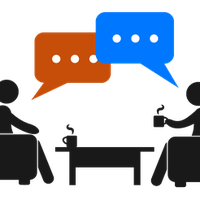Buenas noticias
Good|news
Gute Nachrichten
Good news
Bonnes nouvelles
朗報
Goed nieuws
Boas notícias
Alba tiene buenas noticias que reportar y le envía un mensaje a su amiga Beatriz ...
|turi||naujienas||pranešti|||siunčia||||||Beatriz
Alba|||||berichten|||schickt||||||Beatrix
Dawn|has|good|news||to report|||sends||message||her||Beatriz
ألبا لديها أخبار سارة للإبلاغ عنها وترسل رسالة لصديقتها بياتريز ...
Alba hat gute Neuigkeiten zu berichten und sendet eine Nachricht an ihre Freundin Beatriz ...
Alba has good news to report and sends a message to her friend Beatriz ...
Alba a de bonnes nouvelles à annoncer et envoie un message à son amie Beatriz ...
アルバは良い知らせがあると、友人のベアトリスにメッセージを送る。
Alba heeft goed nieuws te melden en stuurt een berichtje naar haar vriendin Beatriz ...
Hola Beatriz:
Hello Beatriz:
こんにちは、ベアトリス:
¡ Vas a sorprenderte con estas novedades!
||nustebti|||naujovėmis
du wirst||dich wundern|||Neuigkeiten
You|to|be surprised|with|these|news
سوف تفاجأ بهذه الأخبار!
Sie werden von diesen Neuigkeiten überrascht sein!
You are going to be surprised with this news!
Vous allez être surpris par ces nouvelles!
これらの新製品に驚かれることだろう!
El viernes voy a quedar con Julián.
|penktadienį|||||
der||||||
The|Friday|I go||to meet||Julian
سألتقي جوليان يوم الجمعة.
Am Freitag werde ich Julián treffen.
On Friday I will meet Julián.
金曜日にジュリアンに会いに行くんだ。
Ik ga vrijdag naar Julian.
Na sexta-feira vou me encontrar com Julián.
¡Por fin!
|pagaliau
|finally
أخيرا!
Zu guter Letzt!
At last!
最後に
Eindelijk!
Antes, él va a ir a clase.
Zuerst||||||
Before|he|goes|a|go||class
قبل ذلك ، كان يذهب إلى الفصل.
Vorher wird er zum Unterricht gehen.
Before, he will go to class.
Avant, il va en classe.
その前に授業に出る。
Vroeger gaat hij naar de les.
Antes, ele irá para a aula.
Раньше он собирается пойти в класс.
Luego, los del curso van a tomar una cerveza juntos.
vėliau|||||||||kartu
Dann|die Teilnehmer|||gehen||||Bier trinken|zusammen
Then|the|of the|course|go||to have||beer|together
ثم يذهب الفصل لتناول البيرة معًا.
Dann werden die Teilnehmer des Kurses zusammen ein Bier trinken.
Afterwards, those in the class will have a beer together.
Ensuite, les élèves vont boire une bière ensemble.
その後、生徒たちは一緒にビールを飲みに行く。
Daarna gaan de klasgenoten samen een biertje drinken.
Depois, os alunos da turma tomarão uma cerveja juntos.
Затем ученики вместе идут выпить пива.
Pero él no… porque nosotros vamos a ir al cine juntos.
|||||||||kiną|
|||because|we|are going||||movies|together
||||||||||zusammen
لكنه لا يفعل ... لأننا سنذهب إلى السينما معًا.
Aber er tut es nicht ... weil wir zusammen ins Kino gehen.
But he doesn't ... because we are going to the movies together.
Mais il ne le fait pas… parce que nous allons aller au cinéma ensemble.
でも彼は違う...だって一緒に映画館に行くんだもの。
Maar dat doet hij niet ... omdat we samen naar de film gaan.
Но он этого не делает… потому что мы собираемся вместе пойти в кино.
¿Y tú y Alex?
|||Aleksas
|||Alex
ماذا عنك و اليكس؟
Und du und Alex?
What about you and Alex?
あなたとアレックスは?
А что насчет вас с Алексом?
¿Qué vais a hacer el viernes?
ką|eisite||||
What|are you going||do||Friday
|werdet ihr||||Freitag
ماذا ستفعل يوم الجمعة؟
Was machst du am Freitag?
What are you going to do on Friday?
金曜日は何を?
Wat ga je vrijdag doen?
O que você vai fazer na sexta-feira?
Un beso,
|bučinys
Ein|Ein Kuss,
|kiss
قبلة
Ein Kuss,
A kiss,
Un bisou,
キスだ、
Поцелуй,
Alba
Sunrise
lever du soleil
アルバ
zonsopkomst

